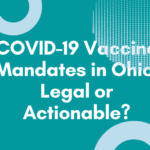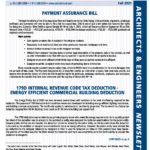Weston Hurd LLP is pleased to announce that Robert H. Stoffers has joined the firm’s Columbus office as a Partner. Bob brings to Weston Hurd more than 35 years of litigation and trial experience. Bob represents his clients in a wide variety of legal matters including general liability, auto and trucking, products liability, construction defects, intellectual property, premises liability, professional malpractice, and errors and omissions.
In addition to his Ohio Bar admission, Bob is admitted to practice before the U.S. District Court for the Northern and Southern Districts of Ohio, the U.S. Court of Appeals for the Sixth Circuit, and the U.S. Supreme Court.
Bob is a member of the Ohio State Bar Association, the Columbus Bar Association, the Ohio Association of Civil Trial Attorneys, and the Claims and Litigation Management Alliance (CLM).
After obtaining his B.A. in 1979 from Otterbein University, Bob received his J.D. in 1982 from the University of Toledo College of Law.
Contact Information
Weston Hurd LLP
101 East Town Street, Suite 500
Columbus, Ohio 43215
Weston Hurd LLP is proud to be named in the 2022 U.S. News-Best Lawyers® “Best Law Firms” rankings in both national and metropolitan categories. Overall, Weston Hurd was listed in 13 practice areas, including a national ranking in Insurance Law.
According to Best Lawyers, firms “are recognized for professional excellence with consistently impressive ratings from clients and peers.” The tiered rankings “signal a unique combination of quality law practice and breadth of legal expertise.” Read the entire U.S. News-Best Lawyers® press release by clicking here: 2022 U.S. News – Best Lawyers® “Best Law Firms” Awards Released
The list of Weston Hurd’s rankings include:
National
Metropolitan
- Commercial Litigation (Cleveland, Tier 1)
- Insurance Law (Cleveland, Tier 1)
- Litigation – Insurance (Columbus, Tier 1)
- Personal Injury Litigation – Defendants (Cleveland, Tier 1, Columbus, Tier 3)
- Construction Law (Columbus, Tier 2)
- Litigation – Labor & Employment (Cleveland, Tier 2)
- Employment Law – Individuals (Cleveland, Tier 3)
- Employment Law – Management (Cleveland, Tier 3)
- Labor Law – Management (Cleveland, Tier 3)
- Medical Malpractice Law – Defendants (Cleveland, Tier 3)
- Personal Injury Litigation – Plaintiffs (Cleveland, Tier 3)
- Product Liability Litigation – Defendants (Cleveland, Tier 3)
- Real Estate Law (Cleveland, Tier 3)
The holidays are a good time to make estate planning decisions, says Jay Nabors, a Cleveland-based attorney who focuses on estate planning.
“This is the time of year when family members are visiting, so getting your affairs in order and then letting your loved ones in on the details makes good sense,” Jay advises. “Sit down with your loved ones and go over the finer points of your estate. That way there are no surprises.”
Jay suggests making a list of the following:
- Your bank accounts and where they are located, as well as who is on each account
- Any retirement accounts
- Any property you may own and where it’s located
- Any investments you may have and with which brokerage(s)
- Any life insurance policies you may hold
- The beneficiaries named for any of the above
Jay says your estate plan is the roadmap your loved ones will follow when you die. Helping them locate important documents and information saves not only time, but also a considerable amount of money.
“If an attorney has to get involved in helping to locate information, or probate court has to get involved, those costs can add up quickly,” he cautions. “It’s also smart to have an attorney review your affairs in advance to see if there are adjustments that can be made to avoid probate court altogether.”
To read the full article click here: Mimi Vanderhaven | Your estate planning roadmap
Contact Information
On November 5, 2021, OSHA’s emergency workplace COVID-19 safety rule will be published and effective. Employers with more than 100 employees will have 30 days to comply. The emergency rule contains several mandatory requirements, few exceptions, typical recordkeeping requirements and some surprising obligations.
The rule requires employers to establish a mandatory written vaccination policy for all employees. This written policy must be produced to OSHA within 4 hours upon a request from OSHA. All current and new employees must be vaccinated except in situations where the vaccine is medically contraindicated, where medical necessity requires a delay, where individuals have a disability or religious practice that conflict with the vaccine requirement. Otherwise, employers must establish, implement and enforce a vaccination policy. If an employee refuses to be vaccinated, OSHA’s new rule requires the employee to provide the employer with documentation of a negative COVID-19 test once a week. The employer must keep records of the employee’s vaccination status and test results.
Employers must require each employee to provide acceptable proof of vaccination, including whether they are fully or partially vaccinated. These records must be maintained by the employer as confidential medical records. An employee may provide a record of immunization, COVID-19 vaccination card, or other medical record or public health documentation that contains the type of vaccine administered, dates of administration, and the name of the health care professional or clinic administering the vaccine. If the employee does not have this documentation, the employer may accept the following attestation from an employee: “I declare that this statement about my vaccination status is true and accurate. I understand that knowingly providing false information regarding my vaccination status on this form may subject me to criminal prosecution.”
Employers must maintain a roster of each employee’s vaccination status. Surprisingly, the employer must provide copies of the employee’s vaccination documentation to an employee or the employee’s authorized representative within 24 hours of a request. The employer must also provide within 24 hours the aggregate number of fully vaccinated employees at a workplace along with the total number of employees at that workplace upon a request from an employee, employee representative, or OSHA.
The new rule requires employers support employees with paid time off for vaccinations and reasonable recovery times. There are requirements for testing of those employees who are not fully vaccinated and procedures for employees who report a positive COVID-19 test. The rule sets forth required notices and educational information to employees by the employer.
Finally, any work-related COVID-19 fatalities or in-patient hospitalizations must be reported to OSHA. Fatalities must be reported within 8 hours and in-patient hospitalizations must be reported within 24 hours of the employer learning about the fatality or hospitalization.
These new rules are effective and in place immediately. Any actions to challenge the constitutionality of the new rule must be filed within 60 days in the federal courts. Please contact Jonathan Good or any other Weston Hurd LLP employment attorney if you have questions about compliance or the constitutionality of the rule.
Contact Information
Getting married to a person with student loan or any other kind of debt can complicate things. Sometimes, because one partner is a little too far into the red, the other spouse is the only one who can be on a mortgage and is therefore the only one to hold title to the house, says Jay Nabors, a Cleveland-based attorney who focuses on estate planning.
“I had a situation recently with this same scenario,” Jay says. “The wife had too much student loan debt and couldn’t be on the mortgage, so that and the title to the house was in her husband’s name. Unfortunately, he passed away at a young age.”
The house, Jay says, doesn’t automatically go to the surviving spouse if one dies. “This is why it’s important to have a Transfer on Death affidavit,” Jay shares. “If one spouse passes, the house automatically transfers to the surviving spouse, even if he or she has student loans, and it doesn’t have to go through probate.”
In the case of this person, she inherited her husband’s 401k plan and got life insurance, so when she contacted the lender she was in a different financial position. Not everyone is so fortunate.
“It’s imperative that in any situation where one spouse is on the loan and the other isn’t that a Transfer on Death affidavit be implemented. It avoids probate, additional costs and headaches,” Jay notes.
To read the full article click: Mimi Vanderhaven | When your spouse has debt
Contact Information
In very few legal scenarios is there a clear cut, black and white answer, and this is especially true when it comes to workplace policy decisions that directly affect employees. When you add in the variable of an employee’s health and medical history, things can become complicated very quickly. Mix in our current hyper-partisan political climate, and a simple “yes you can” or “no you can’t” answer becomes nearly impossible. However, there are ways to make the decision-making process simpler.
But first, we need to start with a question that is regularly posed by employers when deciding whether to make a controversial (or at least novel) workplace decision: “Can my business be sued for doing ‘X’?” (For our purposes, “X” means implementing a COVID-19 vaccine mandate or making an adverse or impactful employment decision in furtherance of that policy.) And the response is usually the same: “Yes, of course your business can be sued.” The more meaningful question is if, under the circumstances, such a suit would have merit or carry the risk of significant damages. That is always a more substantive conversation an employer should have with legal counsel because, while anybody can file a bogus or harassing lawsuit, what should really concern employers is whether if, in the event a lawsuit is brought, that suit has legs.
So, then we reach the topic of the day: Can private employers in Ohio mandate that their employees get the COVID-19 vaccine? The answer is clearly yes. (For now, at least: the Ohio legislature is currently debating bills which may change that answer.) And, similarly, the answer to the question whether an employee may sue claiming an illegal vaccine mandate is, as always, yes. Whether such a claim has merit (and thus may lead to liability) is where the grey area enters the conversation. This is what an employer and legal counsel should investigate before any policy determination is made.
Currently, there is no Ohio law which prohibits a private employer from mandating that its employees be vaccinated. And, no, HIPAA, does not prohibit an employer from asking an employee to prove that he or she was vaccinated. Furthermore, so long as a resulting adverse employment decision is not violative of existing regulatory workplace protections (ADA, FMLA, OSHA health and safety rules, etc.), any ensuing litigation will likely prove fruitless. However, in most scenarios, employers understandably want to avoid making any employment decision which might even potentially instigate a lawsuit, regardless of its merit, as the mere filing may result in expenses an employer wishes to avoid, e.g., retaining legal counsel and incurring legal fees or putting an EPLI carrier on notice of such filing and risking increased premiums or non-renewal.
Should an employer wish to implement such a policy, the decision to do so, and the method by which to get there, is dependent on several industry-specific conditions and should not be made without consulting with an attorney beforehand. Moreover, it is not advisable to take any adverse employment action related to a vaccine refusal (even if such action does not result in termination) without first having a written policy in place, because having such a policy in place, and acting consistently with it, better equips the employer and legal counsel in defending the claim.
The employment attorneys at Weston Hurd have developed COVID-19 vaccine mandate policies and have experience assisting employers through adverse employment decisions issuing from that policy. There are key decisions which require careful consideration before doing either. If you are thinking about such a policy, you are welcome to contact Matthew Seeley or your Weston Hurd attorney to discuss your business’s particular situation.
Contact Information
216.687.3291
All good intentions with handwritten wishes can become complicated when the unexpected happens. Weston Hurd partner Jay Nabors explains in “The Cost of Distancing:”
With nearly everyone avoiding contact over the last year or so, people got creative with the ways they accomplished tasks typically handled in person. Zoom meetings replaced face-to-face interaction, and Door Dash became the conduit for eating out at home.
Unfortunately, when it came to estate matters, many people decided to take matters into their own hands, either skipping estate planning altogether, or, like one couple did, hand-writing a last will and testament.
“He didn’t name an executor, so the wife ended up having to go to court to have herself appointed,” Jay explains. “She had to jump through a lot of hoops to have both the document recognized and herself appointed, which was costly.”
Jay says anyone who is still leery about meeting in person can schedule a consultation by Zoom. He’ll send you all of your documentation to review. Final paperwork does have to be signed in person with two witnesses, but that can be handled with proper distance in a short amount of time. “Life is so unpredictable, it’s a good idea to get your affairs in order right now,” he suggests.
The full article can be viewing by clicking this link: The Cost of Social Distancing
Contact Information
We are pleased to announce that the latest edition of Weston Hurd’s Architects & Engineers Newsletter is now available.
The newsletter contains the following articles:
- Payment Assurance Bill;
- 179D Internal Revenue Code Tax Deduction;
- Senate Bill 56 Status Update
- Ohio Legislature Imposes Contractual Restrictions
- Clause Corner
Download the 2021 Architects and Engineers Newsletter by clicking here.
Should you have any questions, feel free to contact Weston Hurd partners and the newsletter editors – David Patterson and Frederick Bills.
Contact Information









